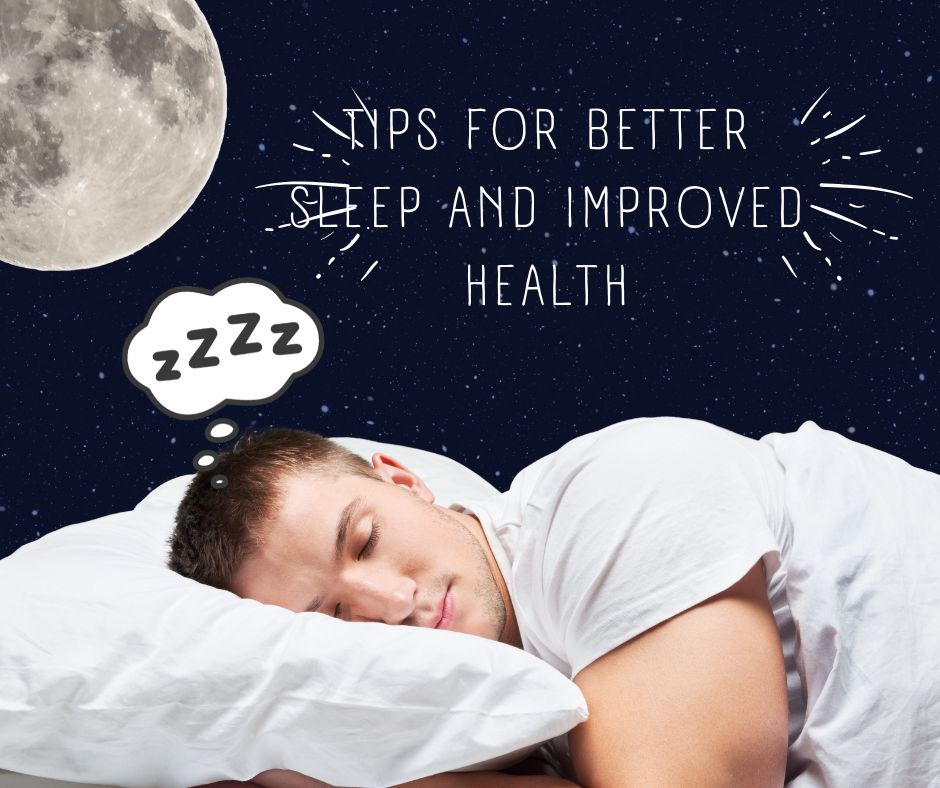The Importance of Sleep Hygiene,Tips for Better Sleep and Improved Health

Sleep is a cornerstone of good health, yet many people struggle to get enough quality rest. Poor sleep can lead to a host of health issues, from weakened immunity to mental health challenges. Sleep hygiene practices and habits that promote consistent, uninterrupted sleep plays a crucial role in improving sleep quality. In this article, we’ll explore the importance of sleep hygiene, its benefits, and practical tips to help you achieve better sleep.
What is Sleep Hygiene?
Sleep hygiene refers to a set of habits and practices that create an optimal environment for restful sleep. It involves both your bedtime routine and your sleep environment. Good sleep hygiene can help you fall asleep faster, stay asleep longer, and wake up feeling refreshed.
Why Sleep Hygiene Matters?
Improves Physical Health
Quality sleep supports immune function, heart health, and metabolism. Poor sleep is linked to chronic conditions like obesity, diabetes, and cardiovascular disease.
Boosts Mental Health
Sleep is essential for emotional regulation and cognitive function. Lack of sleep can contribute to anxiety, depression, and mood swings.
Enhances Productivity and Focus
A good night’s sleep improves concentration, memory, and problem-solving skills, helping you perform better at work or school.
Supports Weight Management
Sleep regulates hormones that control hunger and appetite. Poor sleep can lead to overeating and weight gain.
Reduces Stress
Quality sleep helps lower cortisol levels, the hormone associated with stress, promoting relaxation and emotional balance.
Tips for Better Sleep Hygiene
Stick to a Sleep Schedule
Go to bed and wake up at the same time every day, even on weekends. This helps regulate your body’s internal clock.
Create a Relaxing Bedtime Routine
Wind down with calming activities like reading, taking a warm bath, or practicing mindfulness meditation.
Optimize Your Sleep Environment
Keep your bedroom cool, dark, and quiet. Invest in a comfortable mattress and pillows.
Limit Screen Time Before Bed
The blue light from phones, tablets, and computers can interfere with melatonin production. Avoid screens at least an hour before bedtime.
Avoid Caffeine and Heavy Meals
Limit caffeine intake in the afternoon and avoid large meals close to bedtime, as they can disrupt sleep.
Exercise Regularly
Physical activity promotes better sleep, but avoid vigorous exercise close to bedtime.
Manage Stress
Practice relaxation techniques like deep breathing, yoga, or journaling to calm your mind before bed.
Common Sleep Hygiene Mistakes to Avoid
Irregular Sleep Schedule: Inconsistent bedtimes can disrupt your circadian rhythm.
Using the Bed for Activities Other Than Sleep: Avoid working, eating, or watching TV in bed.
Ignoring Sleep Disorders: Conditions like insomnia or sleep apnea require professional treatment.
Overusing Sleep Aids: Relying on medications or supplements can lead to dependency and mask underlying issues.
Conclusion
Sleep hygiene is essential for achieving quality rest and maintaining overall health. By adopting healthy sleep habits and creating a conducive sleep environment, you can improve your sleep quality and enjoy the numerous benefits it brings. Start small, stay consistent, and prioritize your sleep—it’s one of the best investments you can make for your well-being.
Frequently Asked Questions (FAQs)
- How many hours of sleep do I need?
Most adults need 7–9 hours of sleep per night, while teenagers and children require more.
- What is the best temperature for sleep?
A cool room, around 60–67°F (15–19°C), is ideal for sleep.
- Can napping affect my sleep hygiene?
Short naps (20–30 minutes) can be beneficial, but long or late naps may interfere with nighttime sleep.
- What foods help improve sleep?
Foods rich in magnesium (like almonds) and tryptophan (like turkey) can promote better sleep.
- How long does it take to improve sleep hygiene?
It can take a few weeks to see significant improvements, but small changes can make a difference right away.
- When should I see a doctor about sleep issues?
If you consistently struggle with sleep despite good sleep hygiene, consult a healthcare professional to rule out sleep disorders.


